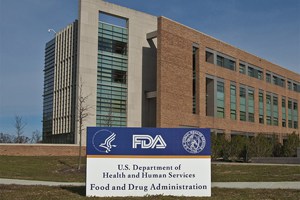 BioCryst Pharmaceuticals has become the first company in the US with approval to sell an intravenous neuraminidase inhibitor as an influenza treatment.
BioCryst Pharmaceuticals has become the first company in the US with approval to sell an intravenous neuraminidase inhibitor as an influenza treatment.
The FDA gave the go-ahead yesterday for Rapivab (peramivir) to treat flu in adults who have been symptomatic for no more than two days, suggesting that regulatory compliance issues at the contract manufacturer for the drug – which resulted in an FDA warning letter – have been resolved.
BioCryst said it expects to be able to launch the drug in time for this year’s flu season, and is also carrying out studies aimed at extending its use to include paediatric influenza patients.
Edward Cox, director of the Office of Antimicrobial Products at the FDA, said: “Rapivab is the third neuraminidase inhibitor approved by the FDA to treat flu infection, but the first approved as an intravenous formulation.
“The availability of a single-dose, intravenous option for the treatment of acute uncomplicated flu allows health care professionals and patients to have a choice based on an individual patient’s needs,” he added.
Rapivab is the third neuraminidase inhibitor to reach the market in the US after Roche’s orally-active Tamiflu (oseltamivir) and GlaxoSmithKline‘s Relenza (zanamivir), which had sales of 452m Swiss francs ($460m) and £41m ($64m) respectively in the first nine months of the year.
As the first intravenous formulation, Rapivab is expected to have an important role to play in treating the 200,000 people who are hospitalised for seasonal flu-related complications each year.
The advantage of the injectable version is that it can be delivered in a single dose – even to a patient who is incapacitated – and doctors can be sure the patient is getting the correct dose of the neuraminidase inhibitor.
Rapivab has been on the market since 2010 in Japan and South Korea – where it is sold as Rapiacta by licensee Shionogi – but it will be BioCryst’s first commercialised product.
Analysts have suggested that sales of the drug will not be enormous but that BioCryst should get a near-term boost as the drug is stockpiled by the US health authorities.
The company’s lead pipeline drug – BCX-4161 for the orphan disease hereditary angioedema (HAE) – is due to start the first of two pivotal trials shortly and is expected to be a much larger product with analysts projecting sales of $500m to $1bn a year.




